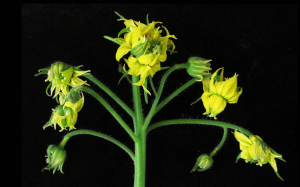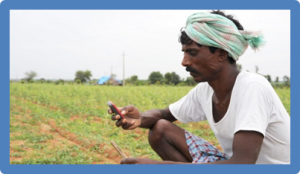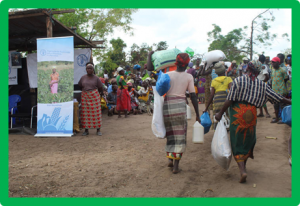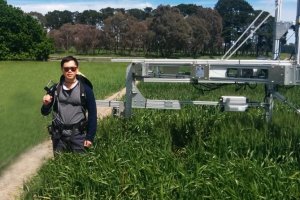VIB has been granted a permit to proceed with its field trial with maize plants containing small surgical CRISPR-induced heritable changes. This permit allows VIB to continue the work that began in 2017. Dirk Inzé, scientific director of the VIB-UGent Center for Plant Systems Biology said, "There is a worldwide consensus that CRISPR-modified crops are at least as safe as traditionally generated mutants."
Pigs play a key role in Papua New Guinea, both culturally and economically. Rising global demand for pork presents new export opportunities, but only if farmers can prove the quality of their product. Together with the International Telecommunications Unit, FAO is creating a distributed ledger system – better known as a blockchain-based system – that can track livestock and allow consumers to buy with confidence by verifying the history of their pigs.
The Pakistan Central Cotton Committee (PCCC) has announced that 93 new cotton varieties will undergo National Coordinated Varietal Trials (NCVT) in four provinces in Pakistan. The NCVT is the near-end stage of the performance evaluation process of any crop variety before Pakistani authorities make their decision to allow commercial cultivation.
In a new study conducted at Cold Spring Harbor Laboratory (CSHL), scientists have identified the different genetic strategies that various flowering plant species use to achieve the same status quo. Stem cells are critical to the survival of flowering plants as they direct how and when a plant will grow. However, having too many or too few stem cells can disrupt a plant's growth. According to CSHL Professor and HHMI Investigator Zach Lippman, a "core genetic circuitry found in all flowering plants" is responsible for all this.
An advisory tool, scalable for any number of farmers, has shown immense potential in facilitating crucial agricultural decisions. A pilot project of the tool, with over 400 farmers across four villages during 2017 and 2018 in Andhra Pradesh, India, demonstrated increases in groundnut yields on average of 16% and up to 50%.
Farmers in areas left devastated by Tropical Cyclone Idai in Mozambique have started to receive much-needed agricultural inputs thanks to a joint effort by the Food and Agriculture Organization of the United Nations (FAO) and Mozambique's Ministry of Agriculture and Food Security to assist hard-hit rural families to get a head-start on the impending secondary growing season.
Gene encoding DREB1A transcription factors from other plants, including Arabidopsis, corn, canola, barley, rice, tomato, and wheat have been cloned and many studies proved expression of DREB1A increase drought tolerance in transgenic plants. In a previous study, MtOsDREB1A gene was isolated and the OsDREB1A gene was successfully transformed into the Chanh Trui rice variety. The results are published in the Journal of Agriculture and Rural Development.
Two studies conducted in the laboratory of Alexander von Humboldt Professor Jijie Chai at the Max Planck Institute for Plant Breeding Research provide unprecedented structural insight into how plant immune receptors are primed and activated to provide plants with resistance against microbial pathogens.
A research team from Australia's ARC Centre of Excellence for Translational Photosynthesis (CoETP) has developed a dynamic model that predicts which photosynthetic manipulations to plants will boost the yields of wheat and sorghum. Crop yields need to increase to feed the growing global population. Lead author Dr. Alex Wu said the prediction tool will help find new ways to improve yields of crops around the world.
How do maize plants form their ears? This question was answered by a team of scientists from the University of Missouri led by maize geneticist Paula McSteen through their study that helped identify the specific gene vital for forming the ears in maize. The results of their study are published in Molecular Plant. The research team found that the gene known as barren stalk 2 (ba2) has an impact on the development of axillary meristems, which are special cells that give rise to the ears.


 Curently online :
Curently online :
 Total visitors :
Total visitors :









